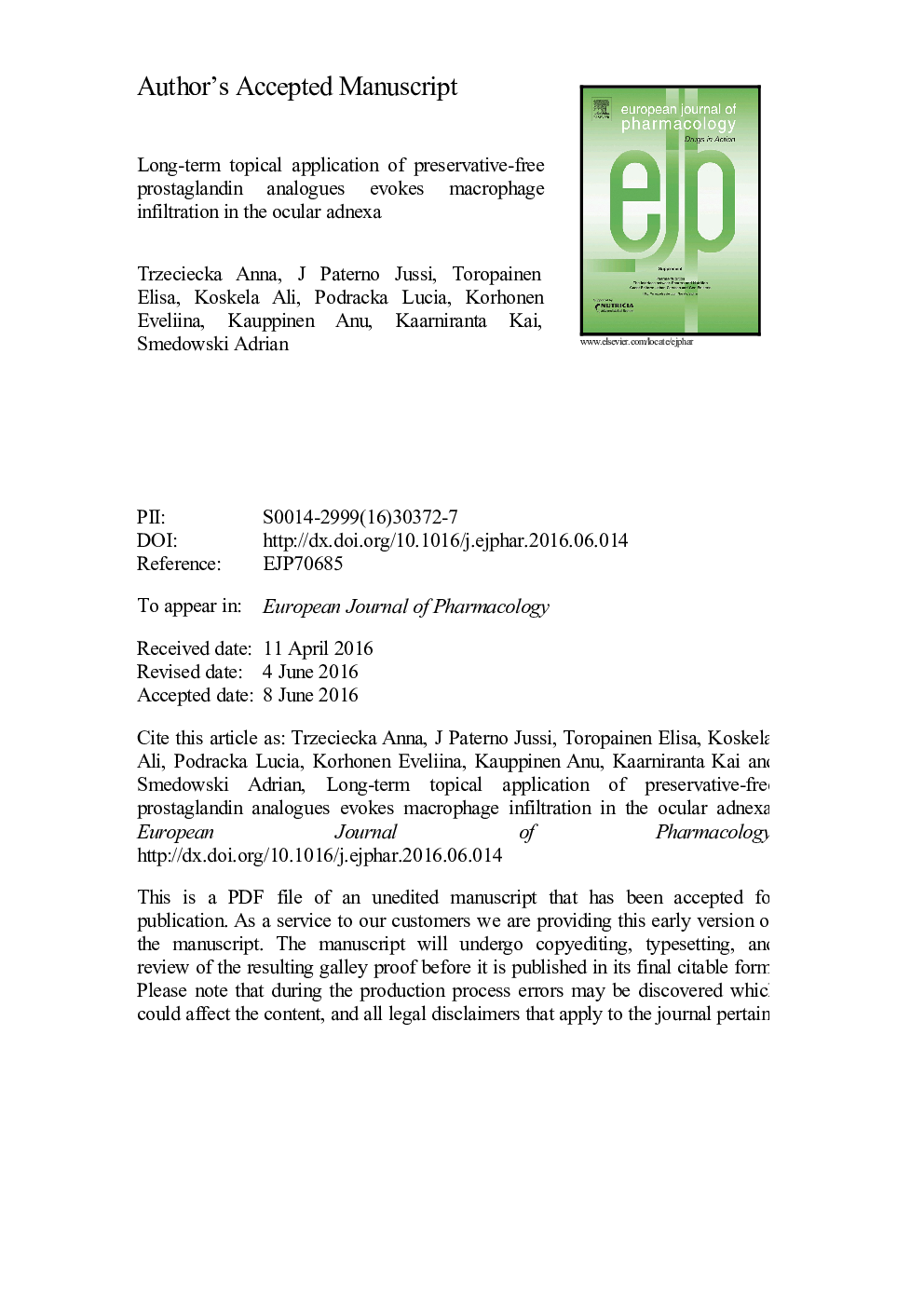| Article ID | Journal | Published Year | Pages | File Type |
|---|---|---|---|---|
| 5826695 | European Journal of Pharmacology | 2016 | 30 Pages |
Abstract
Success of the long-term glaucoma therapy and preservation of the visual function strongly depend on patients' compliance which may be affected by the inconvenience of treatment and its side effects. Recently, introduction of preservative-free anti-glaucoma agents has become an important step towards improved glaucoma care by eliminating the negative effects of preservatives on the eye surface. Although, newly developed eye drop formulations do not contain standard preservatives, they still can be harmful to ocular surface due to other excipients. In this study, we compared tolerability of commercial preservative-free (pf) prostaglandin analogues (pf tafluprost, pf latanoprost and pf bimatoprost) in long-term topical application in rabbits in vivo. We found that after eight weeks treatment, pf latanoprost was the worst tolerated among the tested drops. It expressed increased conjunctival redness and blinking frequency. Furthermore, it caused increased LDH release in the aqueous humour, infiltration of macrophages in the eyelids and visible defects in conjunctival goblet cells. However, we did not detect increased levels of inflammatory markers in the tear fluid or in the aqueous humour. Based on our study, we suspect that these negative effects are related to excipients included in pf latanoprost formulation.
Related Topics
Life Sciences
Neuroscience
Cellular and Molecular Neuroscience
Authors
Anna Trzeciecka, J. Jussi Paterno, Elisa Toropainen, Ali Koskela, Lucia Podracka, Eveliina Korhonen, Anu Kauppinen, Kai Kaarniranta, Adrian Smedowski,
